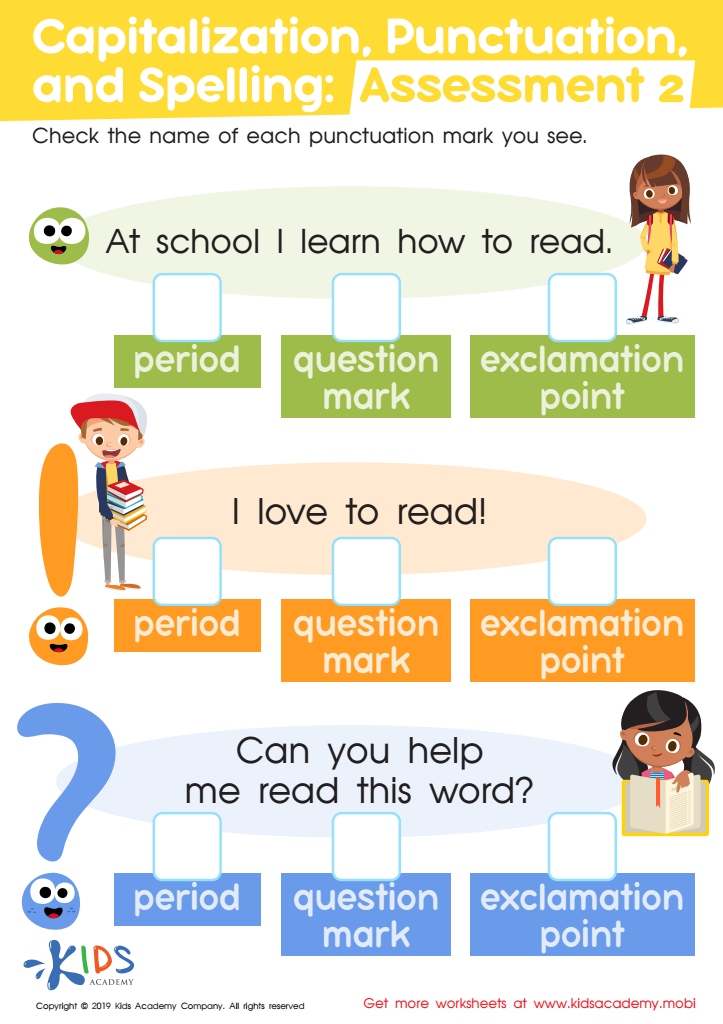Proofreading practice Worksheets for Kids
1 filtered results
-
From - To


Capitalization. Punctuation. Spelling: Assessment 2 Worksheet
Question/Answer
Why is the Proofreading practice skill important for Kindergarten students?
Proofreading practice is important for Kindergarten students because it helps them develop attention to detail, enhances their reading and writing skills, and fosters an understanding of correct language use early on. By learning to identify and correct errors, they improve their literacy skills and gain confidence in their ability to communicate effectively, laying a solid foundation for future academic success.
How to train the Proofreading practice skill in Kindergarten students learning about Punctuation?
To train proofreading skills in kindergarten students focusing on punctuation, incorporate fun, interactive activities such as matching punctuation marks to sentences, correcting simple sentences with missing or incorrect punctuation, and creating sentences from a given set of words and punctuating them correctly. Use visual aids, games, and hands-on materials for engagement and reinforcement of the concepts.
How does the mastery of the Proofreading practice skill affect a student's performance at an early age?
Mastery of the Proofreading practice skill at an early age significantly enhances a student's writing and reading abilities. It promotes attention to detail, improves spelling and grammar, and fosters a deeper understanding of language structure. Consequently, this mastery boosts academic performance, encourages independent learning, and lays a strong foundation for effective communication skills.
 Assign to the classroom
Assign to the classroom












